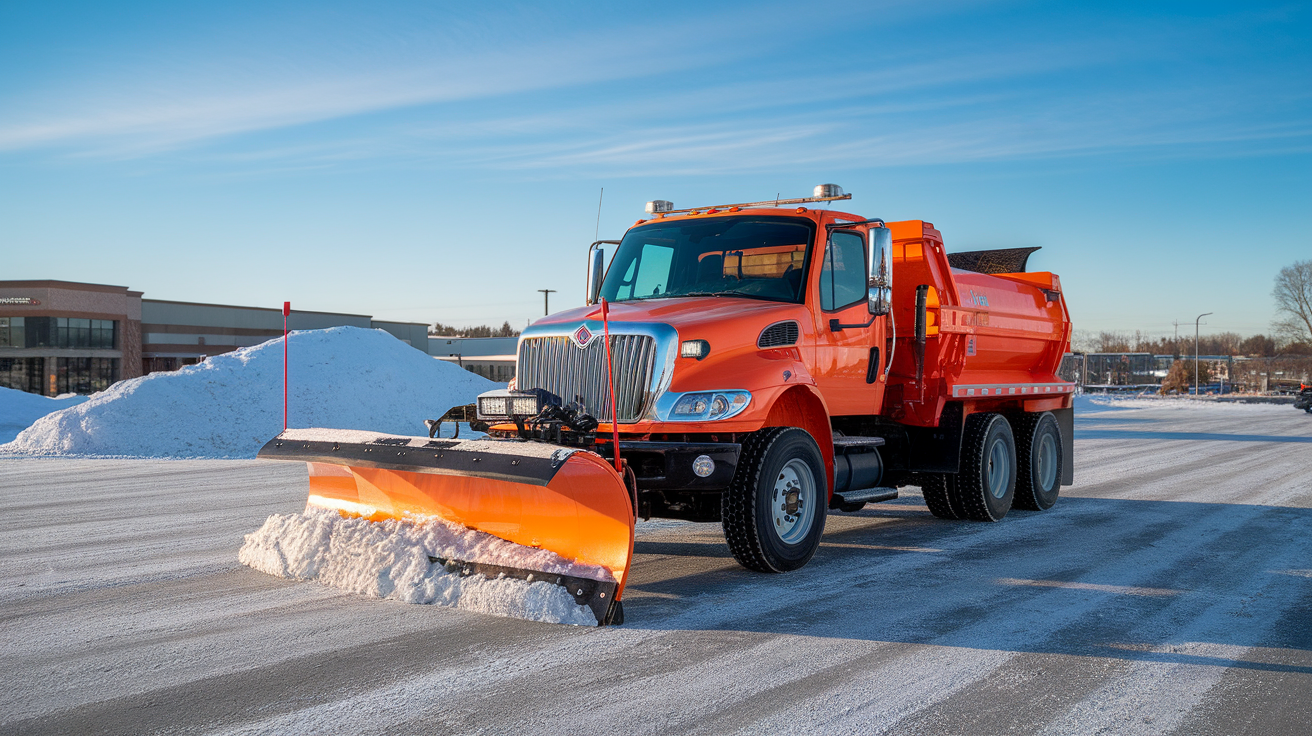
Table Of Contents
Seasonal Considerations for Snow Plowing
Seasonal considerations play a crucial role in the effectiveness of snow plowing strategies. Winter often brings varying weather patterns, which can influence the timing and approach to snow removal. Areas that experience frequent snowfall may require more regular plowing, while regions with sporadic snow events might focus on response strategies that adapt to the weather forecast. Understanding the local climate helps crews determine when to proactively deploy snow plowing resources, ensuring safe and accessible roadways for drivers.
Temperature fluctuations also impact the snow plowing process. Cold temperatures can lead to icy conditions, making it essential to consider not just the accumulation of snow but also how temperatures will affect the snow's consistency. In situations where temperatures rise slightly, snow may become wet or slushy, requiring a different plowing technique than dry, powdery snow. Being aware of these seasonal changes allows for effective planning and execution of snow plowing efforts, ultimately prioritizing safety for all road users.
Timing and Frequency of Snow Removal
The timing and frequency of snow plowing play a crucial role in maintaining safe and accessible roadways during winter months. Timely snow removal helps prevent the accumulation of ice and snow, which can create hazardous driving conditions. The frequency often depends on the amount of snowfall and the specific needs of the area. In regions that experience heavy snowfalls, frequent plowing may be necessary to keep roads clear and ensure public safety.
Planning for snow removal involves monitoring weather forecasts and being prepared for swift action. Many municipalities have set guidelines for when snow plowing should occur, often prioritizing busy roads and emergency routes. Property owners should also establish a snow removal plan for their driveways and sidewalks to prevent issues for residents and visitors. Regular communication with local snow plowing services can further enhance safety and accessibility throughout the winter season.
Snow Plowing Regulations
Snow plowing regulations are essential for ensuring safety and accessibility during winter months. Many local governments establish specific guidelines that dictate how and when snow plowing should be conducted. These rules often cover everything from snow removal on public roads to the responsibilities of property owners for keeping sidewalks clear. Compliance with these regulations helps maintain order during snow events and minimizes hazards for drivers and pedestrians.
Additionally, these regulations may include provisions regarding the equipment and methods used for snow plowing. Some jurisdictions require snow removal companies to register and adhere to local standards. This may encompass guidelines on the timing of snow plowing services, equipment certifications, and even environmental considerations to prevent salt runoff. Understanding and following these regulations is crucial for both residents and businesses to ensure efficient snow management.
Local Government Policies and Guidelines
Local government policies on snow plowing play a crucial role in ensuring public safety and accessibility during winter months. These regulations often outline priorities for snow removal, focusing first on major roadways, emergency routes, and areas around public facilities. Communities typically establish guidelines that dictate the expectations for both residents and property owners. Understanding these local policies is essential for effective winter preparedness.
Residents are encouraged to familiarize themselves with their municipality's specific snow plowing policies to avoid any potential fines or penalties. Many local governments provide comprehensive information on their websites about snow removal schedules and procedures. Clear communication from local authorities helps manage public expectations and promotes cooperation among community members during heavy snowfall events. This open dialogue fosters a smoother process for snow plowing and enhances safety for all.
Hiring Professional Snow Plowing Services
When it comes to hiring professional snow plowing services, it is essential to evaluate the reliability and experience of the company. Researching local providers offers insights into their reputation and effectiveness. Reading customer reviews can reveal how well they handle various snowfall conditions. Additionally, ensuring that the service is adequately insured and licensed protects both the property owner and the service provider.
Cost is another significant factor to consider when selecting a snow plowing service. Many companies offer contracts with fixed pricing, which can be beneficial during severe winter storms. Alternatively, some services charge per visit, which may be more economical if snow accumulation is minimal. Understanding the pricing structure helps in making an informed decision while ensuring that the property receives prompt and efficient snow plowing throughout the winter season.
Factors to Consider When Choosing a Service Provider
When selecting a snow plowing service, it is essential to evaluate the provider's experience and reputation in the industry. Look for companies that have established themselves in the community and have a track record of reliability during harsh winter conditions. Customer reviews can provide insight into their performance and level of satisfaction. A well-regarded service is more likely to handle snow removal efficiently and safely, ensuring your property remains accessible.
Another significant factor is the range of services offered. Some providers may only handle basic snow plowing, while others might offer additional services such as salting, shoveling walkways, or snow hauling. Determine your specific needs ahead of time and confirm that the potential service provider can accommodate them. Be sure to inquire about their equipment as well, since modern, well-maintained machinery can enhance the effectiveness and speed of snow plowing efforts.
FAQS
What is snow plowing?
Snow plowing refers to the process of clearing snow from roads, driveways, sidewalks, and other surfaces using a specialized vehicle equipped with a plow. This is essential for maintaining safe and accessible travel during winter months.
Why is snow plowing important?
Snow plowing is vital for ensuring public safety, improving traffic conditions, and facilitating the mobility of emergency services during winter storms. It helps reduce accidents and enhances the overall accessibility of communities.
What factors influence the timing and frequency of snow removal?
The timing and frequency of snow removal depend on several factors, including the amount of snowfall, temperature, traffic conditions, and local regulations. Typically, snow removal is conducted after significant snowfall to ensure safe travel.
Are there regulations governing snow plowing?
Yes, snow plowing regulations can vary by location, with local governments often setting policies and guidelines that dictate how and when snow removal should be conducted. These regulations are aimed at maintaining public safety and accessibility.
How do I choose a professional snow plowing service?
When choosing a professional snow plowing service, consider factors such as the company's experience, availability, pricing, and customer reviews. It’s also important to check if they comply with local regulations and have the necessary insurance coverage.

